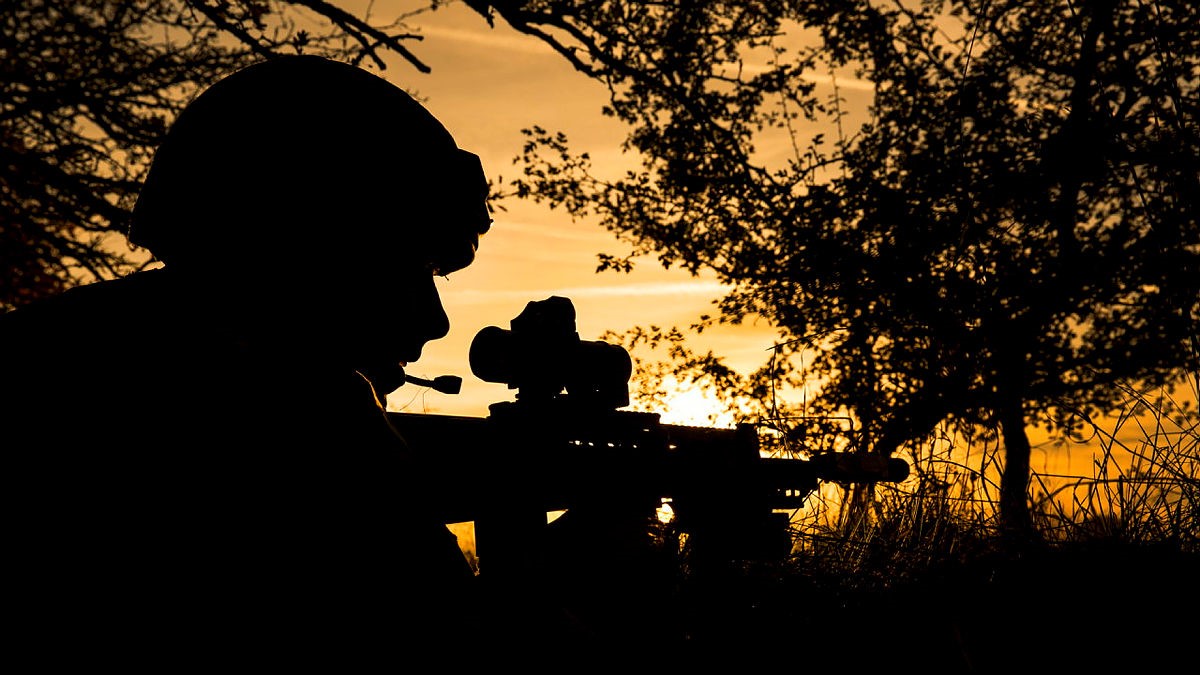
Falling levels of military recruitment represent a national security crisis, MPs told

Falling levels of recruitment in the British Armed Forces is a profound national security risk, ministers have been told.
MPs have been taking part in a debate over the publication of several recent committee reports that have raised concerns about the Ministry of Defence's resources and ability to respond to a range of threats facing the UK.
Backbench Conservative MP Danny Kruger (Devizes) told the Commons: "The Public Accounts Committee, I understand, heard for every five people recruited to the armed services, eight are leaving.
- UK not ready to fight an all-out war due to capability and recruitment issues, MPs warn
- MOD's failure over plan to fund desired capabilities leaves UK in alarming place, report says
- New Defence Committee chairman vows to seek more funding for Armed Forces
"That is a national security crisis, it is not just a problem for recruitment, it is an absolutely profound security risk."
He added: "We need a very quick total review of the people issue in our Armed Forces.
"It can be done quickly and all it probably entails is an amalgamation of all the work that has been done by others, but I would like to see it with a great degree of urgency."
The discussion comes after MPs warned last month that the UK's readiness to fight an all-out war is marred by capability and recruitment issues.
In a report on Armed Forces readiness – Ready For War?' – the Commons Defence Committee said the Government must address the Armed Forces' capability, stockpile shortages and recruitment crisis.
The report also stresses that the military is "consistently overstretched", with the demands of operations personnel deployed leaving little time for training in warfighting.
A report published by the Public Accounts Committee (PAC) said earlier this month the MOD has no credible plan to fund the military capabilities the Government wants and leaves the UK vulnerable to reliance on protection from allies.
The PAC said it risks such support not always being available and has called on the MOD to get a better control of defence procurement.
On Tuesday, Mr Kruger told the Commons the UK must "restore the mass" to its Armed Forces.
He explained: "We need to get back towards 80,000, 90,000 regular forces, we need to grow the reserve force – 30,000 is not enough even if that 30,000 were real, which I don't believe it is – we have to significantly grow the reserve force.
"I think a campaign to grow our reserves is necessary, not just for its own sake, but it's a great exercise in communication to the public about the imperative of us all to step up and play our role in the defence of our country."
Conservative MP Alec Shelbrooke, raising the need for revenue spending, said: "Following fiscal rules and saying 'well look how much money we're putting into defence' is great, but it has to be capital because they haven't given the revenue.
"So let's line up all our shiny ships but we can't fuel them, we can't maintain them, we can't crew them.
"It's the same in the Army, it's the same in the Air Force. There has to be a fundamental change at the Treasury as to how the money is spent."
George Galloway, Workers Party of Britain MP for Rochdale, said: "There's plenty of jingo but, of course, the men, the ships and the money are more difficult to find."
He added: "We haven't the men, we haven't the ships, we haven't the money, so why are we picking enemies?
"I've lost count of the number in the course of this debate that we are either already fighting or may have to get ready to fight. That's the absurdity, the Alice in Wonderland nature of this debate."









